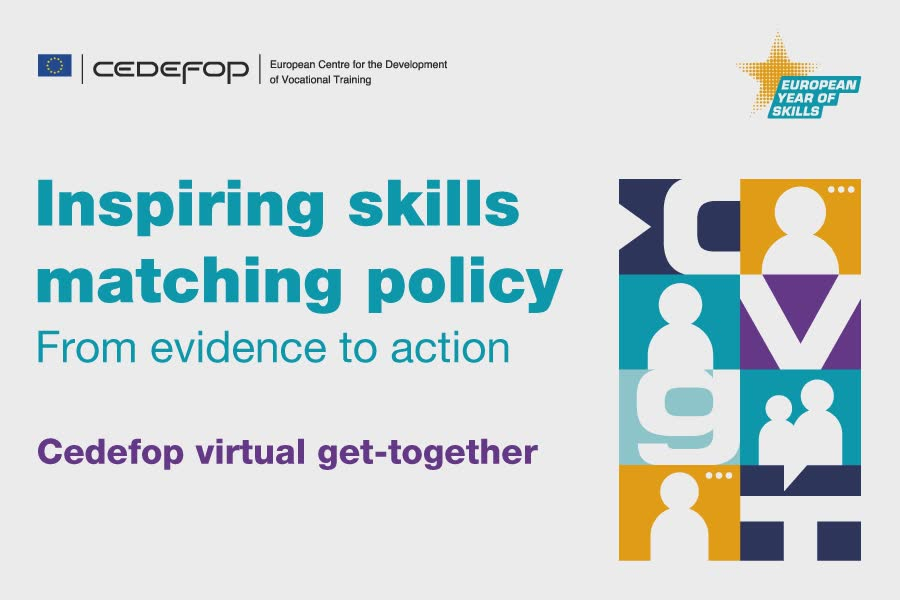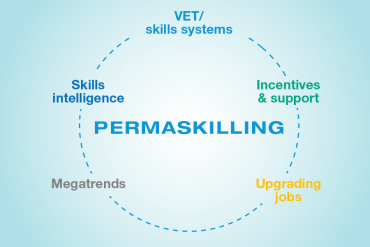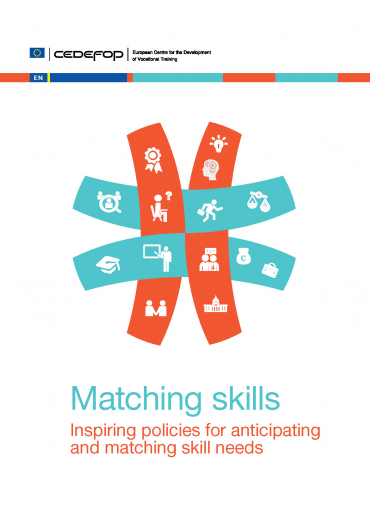Turning skills intelligence into effective skills matching measures was the focus of Cedefop’s fifth virtual get-together on 17 October.
The event, part of Cedefop’s European Year of Skills programme of activities, was attended by 100 policy officials and practitioners, social partners, representatives of civil society institutions and experts who discussed best practice in designing policies that can tackle the problem of skills mismatch, based on the solid skills forecast and foresight research available.
Presenting Cedefop’s research, the Agency’s expert Konstantinos Pouliakas focused on what type of policies EU countries deploy in order to mitigate skill mismatch in their labour markets.
He noted that Cedefop’s second European skills and jobs survey evidence shows that, in addition to widespread concerns about labour shortages, about one third of the European workforce are overqualified for their job and a half of adult workers do not effectively use their skills at work, with negative implications for their wages and job satisfaction.
But even though we know much about the magnitude and consequences of skill mismatches, much less is known about what skill mismatch policies are actually implemented in EU countries on the ground, Mr Pouliakas said while introducing Cedefop’s revamped ‘Matching skills’ online tool.
This is a dedicated database containing information from over 100 skills-matching initiatives from the 27 EU Member States, built around all main initiatives used in EU countries to anticipate skill needs and some of the key VET programmes that use skills intelligence in their design.
Skill shortages and job changes may be exacerbated in the future.
Analysing the database, Mr Pouliakas highlighted some of the main lessons learnt:
- There is a greater blending of VET and employment policies.
- Skill ‘deficiencies’ constitute the main priority of EU skill mismatch policies, despite evidence of high skills underutilisation.
- Policies aimed at mitigating skill mismatches also tend to focus on the upskilling and reskilling of individuals’ soft and career management skills.
- There is still little focus on obtaining wider social inclusion and sustainability goals.
A key insight – he underlined – is that the skills anticipation policy landscape has become increasingly diversified, relying not only on national ministries and public employment agencies but also on the wider support of social partners and research organisations.
Reflecting on the main insights of the ‘Matching skills’ online tool, Professor Terence Warwick of the University of Warwick noted that while technological change tends to be incremental, there is lots of evidence that skill shortages and job changes may be exacerbated in the future.
He noticed the need for producing innovative labour market and skills intelligence that effectively communicates data to a variety of target users using a wide arsenal of methods. Cedefop’s comprehensive skills governance framework constitutes an archetype for countries wishing to build sound skills anticipation and matching systems, he said.
The event also included a panel discussion that showcased three initiatives included in Cedefop’s matching skills webtool. Panelists explained how they work and what drives their success and agreed that sharing knowledge about what works in practice and what not will help sectors, regions and communities translate EU and national skills policy ambitions into ground level skilling action.




